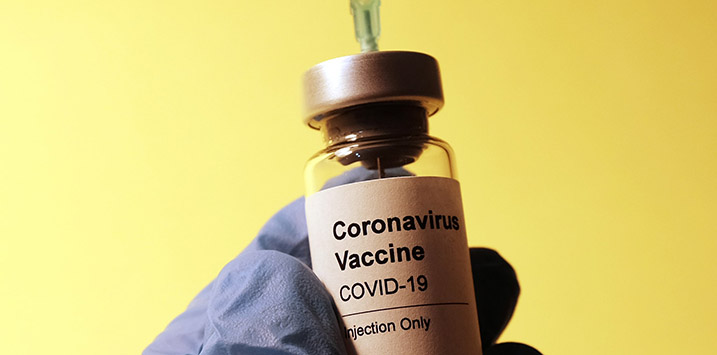
Despite declining efficacy, vaccines are our only way back to normal life
I have been reading the media reports noting the efficacy of COVID-19 vaccines declines over time. Thankfully, even with reduced efficacy, vaccines provide protection from serious disease, and a booster shot will increase efficacy. A high vaccination coverage provides the impetus for politicians to safely re-open our societies. And that will be a shot in the arm for many Australian businesses.
There are currently a lot of headlines about the efficacy rates of the COVID-19 vaccines dropping over time and this is currently one of the factors that is influencing the stock market. There are a number of factors that would naturally impact the efficacy rates:
- Antibodies against COVID-19 have been shown to peak about one month after vaccination and then drop over time while T-cells and B-cells have been shown to remain high for at least six months and probably longer after vaccination. Antibodies can be compared to the actual soldiers fighting an invader in the body while T-cells and B-cells can be compared to the military academies that can quickly train new soldiers and we should therefore expect a drop in efficacy against infection over time as the level of antibodies decline but as long as the body’s military academies are there to quickly train new soldiers, we should expect the efficacy against severe illness to continue to be high.
- New variants like Delta have evolved from the variants that the vaccines were originally designed for and it would be natural for efficacy to drop, especially the efficacy against infection as it is combined with the drop in the number of antibodies. The important question is if the new variants are still “close enough” to the original strains so that the efficacy against serious illness is still high.
- Studies probably do not capture the effects of increasing access to testing compared to last year and also that vaccinated people are now socially distancing less.
- In countries where a high portion of the population has had COVID-19 and hence has high natural immunity, the resulting efficacy numbers for vaccines will be lower than in countries like Australia where natural immunity levels are low.
There are certainly other factors at play but these are the main ones I have seen quoted in the various studies.
So what are the current studies showing?
Courtesy of Goldman Sachs, which published an interesting summary of the various studies worldwide, we have some interesting charts that I will comment on below.
First this chart shows a clear trend that the studies coming out over the last couple of months are showing less efficacy against infection than the first real world studies published back at the beginning of the year. The good thing is that it is only the efficacy against infection and developing symptoms (Blue and Red dots) that is dropping, and the efficacy against hospitalisation (Grey dots) remains at very high levels:
In Australia, there has, as everyone is surely aware, been a lot of discussions about which vaccine to get. The note also shows some interesting data comparing the efficacy against infection over time comparing Pfizer with AstraZeneca and we can see that it looks like Pfizer drops a bit faster than AstraZeneca but remains about 10 percentage points higher after three months:
The most important measure is how good the vaccines are at providing protection against serious illness and this chart below shows in more detail that this efficacy remains high over time. There seems to be a slight drop but I am not sure how statistically significant that is, given the sample set. We should remember that if we do get a drop from say 95 per cent efficacy to 90 per cent efficacy, it means that the number of hospitalisations is expected to double:
If we put the efficacy against infection, symptomatic infection and hospitalisation in the same chart and average over the vaccines generally used in the Western World, we again see how much better the protection against serious illness (hospitalisation) holds up over time:
The good news is a booster shot significantly increases the protection the vaccines offer as the recent trends from Israel show where they started giving booster shots to people over 60 on 1 August. Israel has seen a sharp increase in the efficacy against infection in a short period of time. It is of course too early to say if this efficacy will again fade over time:
So, what is my conclusion from this data?
I am definitely not an infectious diseases specialist but to me it looks like relatively good news. Once a large enough portion of the population is vaccinated, the protection against severe illness looks high enough for long enough that healthcare systems should not be overwhelmed with cases. Politicians’ promises of no more economically damaging lockdowns once we pass a certain level of vaccination coverage does therefore look achievable.
However, we will probably have to look forward to regular booster shots as the virus mutates over time and drifts far enough away from the original vaccines that the efficacy starts to diminish.
This post was contributed by a representative of Montgomery Investment Management Pty Limited (AFSL No. 354564). The principal purpose of this post is to provide factual information and not provide financial product advice. Additionally, the information provided is not intended to provide any recommendation or opinion about any financial product. Any commentary and statements of opinion however may contain general advice only that is prepared without taking into account your personal objectives, financial circumstances or needs. Because of this, before acting on any of the information provided, you should always consider its appropriateness in light of your personal objectives, financial circumstances and needs and should consider seeking independent advice from a financial advisor if necessary before making any decisions. This post specifically excludes personal advice.
INVEST WITH MONTGOMERY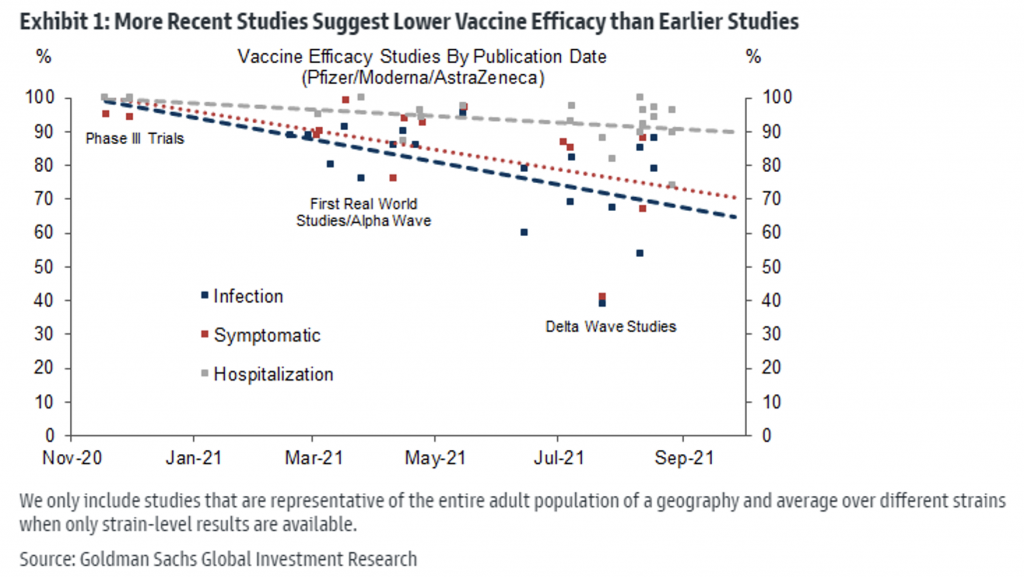
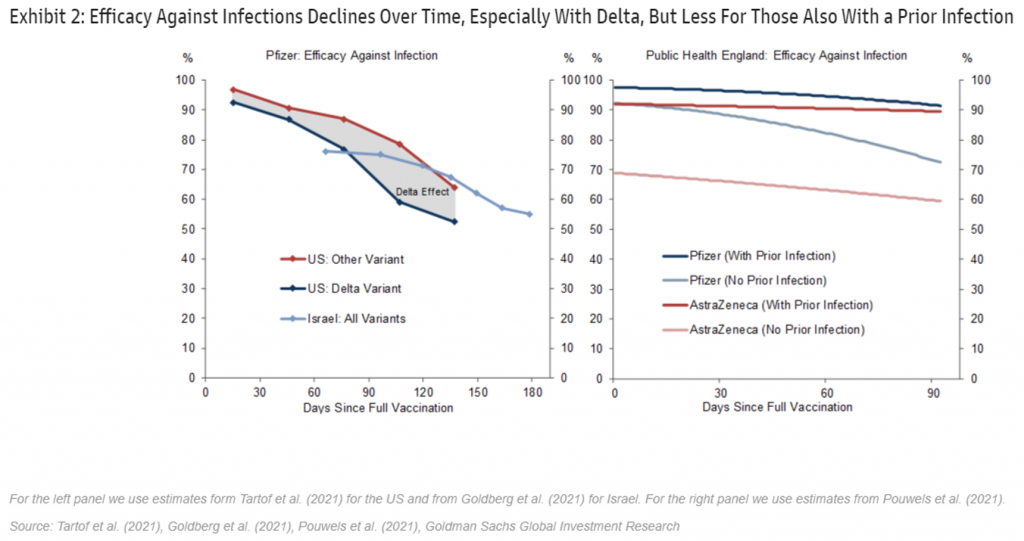
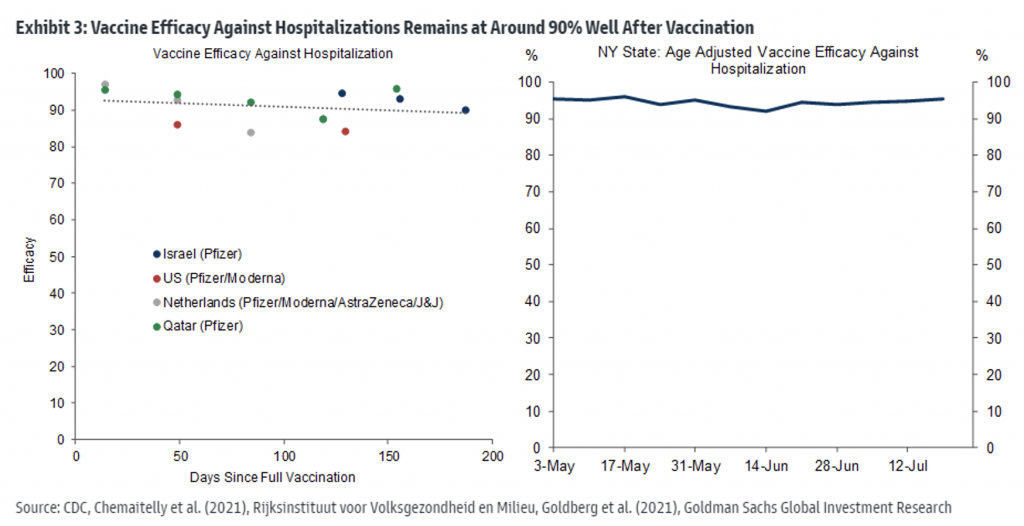
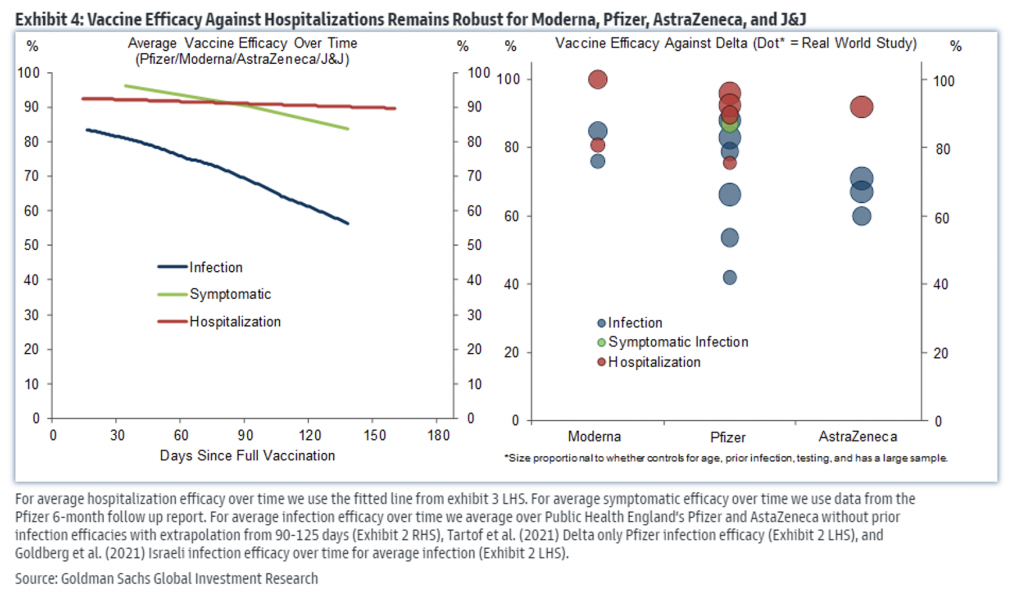
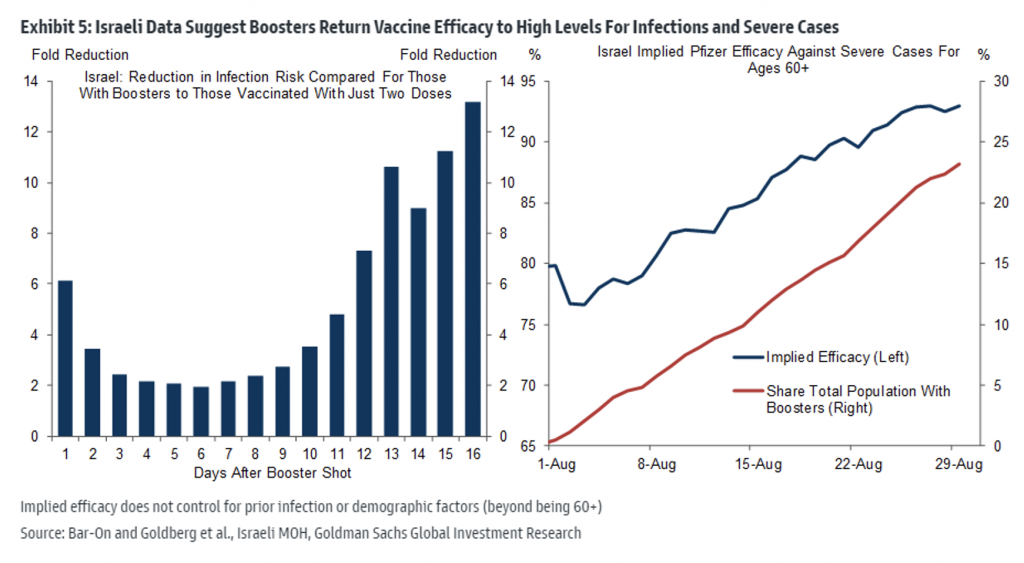
Thankyou Andreas. It’s reassuring to read this. My son is an ICU nurse and I worry about the waning of vaccine effectiveness as he is coming up to 6 months post vaccination. I am a little less worried now but hoping the frontline healthcare workers at ground zero are offered boosters soon.